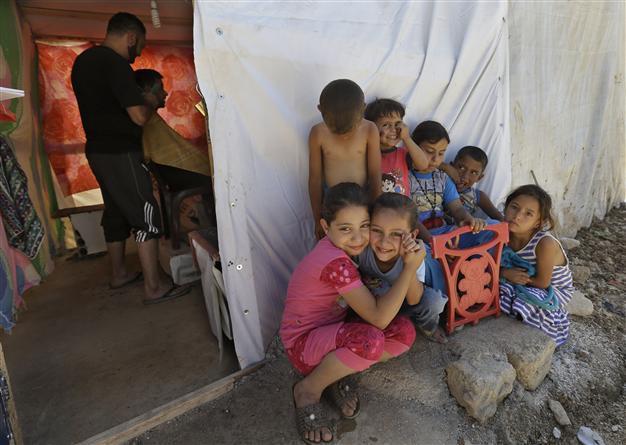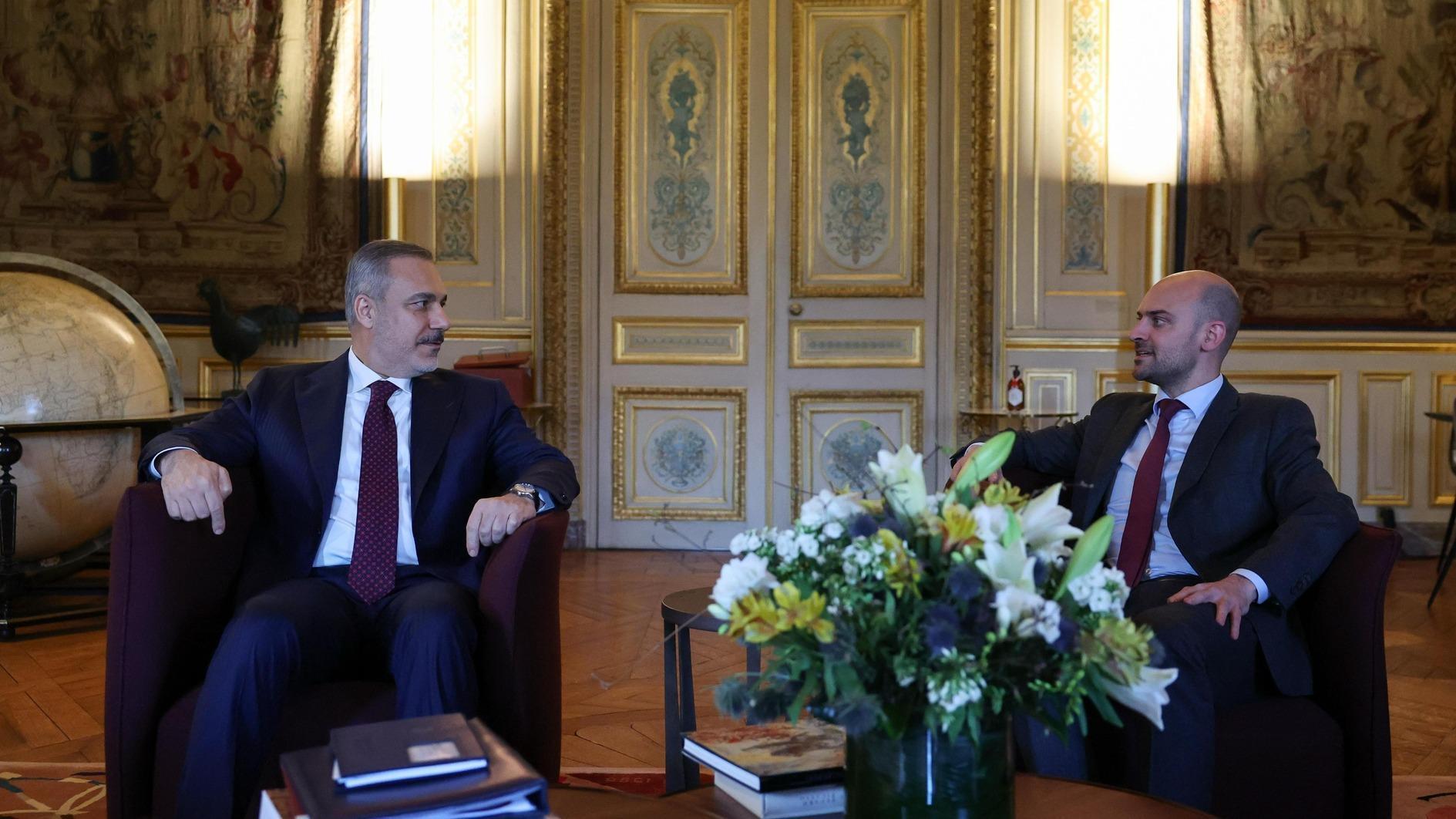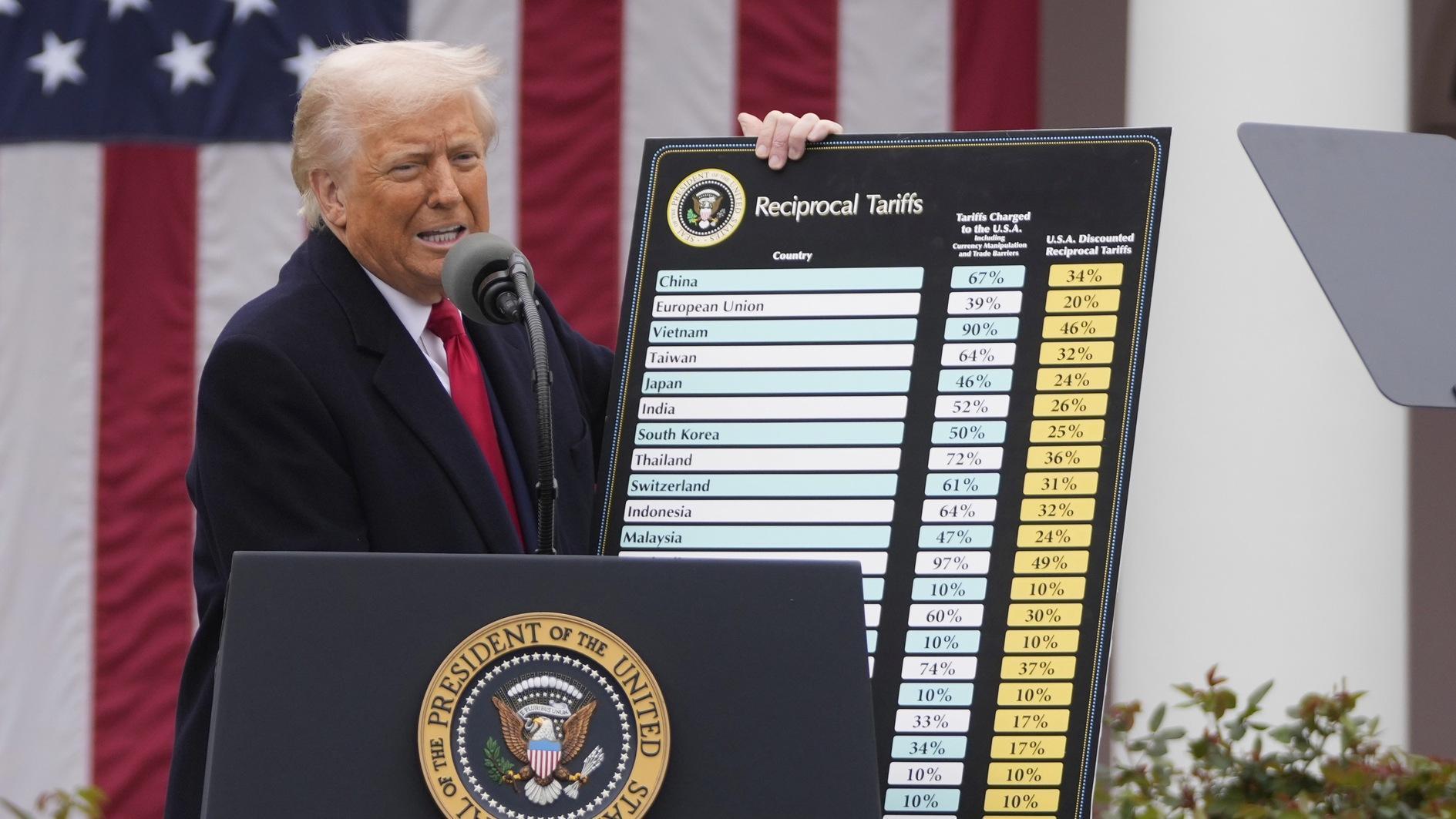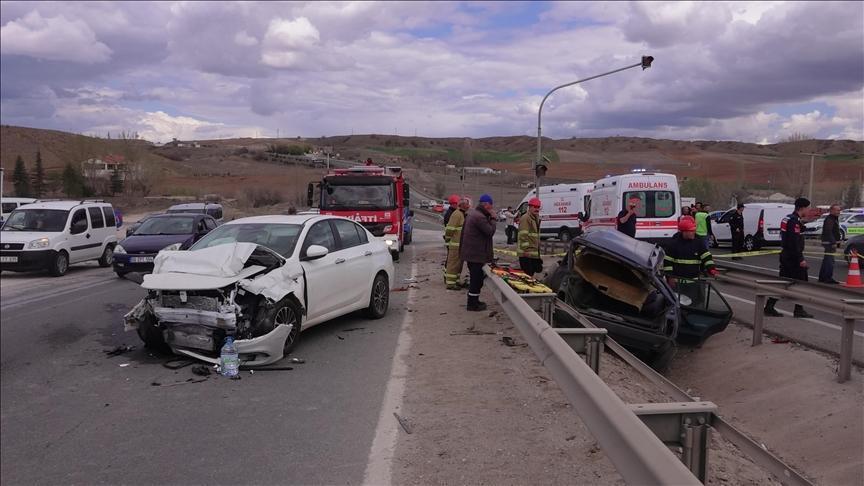Syria war, refugees to cost Lebanon $7.5 billion: World Bank
BEIRUT - Reuters

A Syrian refugee trims a man's hair, as children pose for a photograph at a temporary refugee camp, in the eastern Lebanese Town of Al-Faour, Bekaa Valley near the border with Syria, Sept. 11. AP photo
Syria's conflict will cost Lebanon $7.5 billion in cumulative economic losses by the end of next year, the World Bank has said in a report prepared for an aid meeting at the United Nations.A summary of the report, seen by Reuters after the World Bank briefed diplomats in Beirut, providesthe most detailed assessment yet of the strain Syria's conflict has placed on its small neighbour.
It estimates that the war and resulting wave of refugees into Lebanon will cut real GDP growth by 2.85 percent a year between 2012 to 2014, double unemployment to above 20 percent and widen the deeply indebted nation's deficit by $2.6 billion.
U.S. ambassador to Lebanon David Hale said on Thursday the bank's assessment underscored just how serious a challenge Lebanon faces, and the importance of dealing with it "not only for humanitarian reasons, but for Lebanon's very stability".
The Syrian war has spilled into Lebanon with car bombs in Beirut and Tripoli, street fighting in major cities and rocket fire in the Bekaa Valley. Political paralysis has exacerbated the instability which has hit tourism, trade and investment.
U.N. Secretary-General Ban Ki-moon is due to convene an international support group for Lebanon at the United Nations annual summit meeting next week to provide humanitarian aid and development assistance and strengthen Lebanon's armed forces.
Hale, speaking after meeting Lebanon's Social Affairs Minister Wael Abu Faour, said the crisis put a responsibility on world powers to "help deal with a situation which we all know is well beyond Lebanon's capacity to deal with alone".
Close to one million refugees
Lebanon's biggest challenge comes from almost one million Syrians who have fled the fighting, burdening its health and education sectors and increasing demand for power in a country already suffering daily electricity cuts.
The United Nations says 748,000 refugees have registered or are awaiting registration in Lebanon but the World Bank estimated a total of 914,000, excluding the many tens of thousands of Syrians in Lebanon before the crisis.
It predicted that number would rise to 1.3 million by January and to 1.6 million, or 37 percent of the country's pre-crisis population, by the end of next year - the biggest wave of refugees flowing into the smallest of Syria's neighbours.
Lebanese officials have complained that while international donors have helped fund U.N. and other agencies in Lebanon, the country has received little direct international support to absorb the economic shocks of the crisis.
President Michel Suleiman, who will attend the meeting with Ban next week, has said some of the refugees should be settled outside the Middle East.
The World Bank report estimated Lebanon's economic losses, in terms of lower GDP, at more than $1.1 billion in 2012, nearly $2.5 billion this year and up to $3.9 billion next year, giving a cumulative loss of $7.5 billion.
Before the crisis, 1 million Lebanese, or a quarter of the population, were classified as poor - defined as living on less than $4 a day. Another 170,000 will be pushed into poverty while the existing poor will face deeper difficulty, it said.
Lebanon's hospitals and schools have struggled to deal with the influx.
The report said 90,000 Syrian children were expected to enrol in schools this academic year, rising to around 150,000 next year - more than half the number of public school students in Lebanon. Even that figure excluded around two thirds of refugees who were not expected to enrol in formal schooling.
Health services also face a huge increase in demand. Last December, 40 percent of primary health care visits were for Syrian refugees, the World Bank said.
















